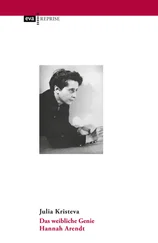1. Miguel de Cervantes, Don Quixote (1885; Project Gutenberg), second part, chap. 4, trans. John Ormsby, www.gutenberg.org/cache/epub/996/pg996.html. Release date July 27, 2004. Accessed November 11, 2012.
2. Testimonies , 5, CW 1:386.
3. Letter from Juan de Ávila, April 2, 1568; see Rosa Rossi, Thérèse d’Avila (Paris: Cerf, 1989), 76.
4. Letter 8, to Luisa de la Cerda, May 27, 1568, CL 1:49.
5. Letter 9, to Luisa de la Cerda, June 9, 1568, CL 1:52.
6. Letter 10, to Luisa de la Cerda, June 23, 1568, CL 1:53.
7. Letter 14, to Luisa de la Cerda, November 2, 1568, CL 1:62.
8. Letter 13, to Francisco de Salcedo, late September 1658, CL 1:60.
9. Life , 37:5, CW 1:325.
10. Life , 20:27, CW 1:183.
11. Found ., 18:1, CW 2:3:185–86.
12. Testimonies , 12:4, CW 1:390.
13. Letter 38, to Luisa de la Cerda, November 7, 1571, CL 1:110.
14. Testimonies , 31, CW 1:402.
15. Testimonies , 30, CW 1:401.
16. Letter 219, to Gaspar de Salazar, December 7, 1577, CL 1:583.
17. Life , 14:11, CW 1:138.
18. Ibid.
19. Life , 25:13, CW 1:219.
20. V D , 3:10, CW 2:352.
21. Ibid., 3:11.
22. VI D , 2:6, CW 2:369.
23. VI D , 2:4, CW 2:368.
24. VI D , 2:7, CW 2:369.
25. VI D , 6:6, CW 2:393.
26. Ibid.
27. VI D , 6:9, CW II 395.
28. VI D , 6:8, CW 2:394.
29. VI D , 6:10–11, CW 2:395–96.
30. VI D , 6:10, CW 2:395.
31. Ibid.; see also the reference to “ algarabía ” in Life , 14:8, CW 1:137: “It is more difficult to speak about these things than to speak Arabic.”
32. Testimonies , 33, CW 1:404.
33. Testimonies , 36:1–2, CW 1:405–6.
34. Testimonies , 36:3, CW 1:406.
35. Dante, The Divine Comedy , trans. Henry W. Longfellow, Paradiso , canto 33 (London: Capella, 2006), 381.
36. Way , 19:9–10, CW 2:111–12.
37. Letter 88, to María Bautista, August 28, 1575, CL 1:221 et seq.
38. Letter 105, to María Bautista, April 29, 1576, CL 1:268.
39. Letter 104, to María Bautista, February 19, 1576, CL 1:263–64.
40. Letter 106, to Ambrosio Mariano, May 9, 1576, CL 1:272–75.
41. Visitation , 2, CW 3:337.
42. Visitation , 3, CW 3:337.
43. Visitation , 1, CW 3:337.
44. Critique, CW 3:359.
45. Letter 219, to Gaspar de Salazar, December 7, 1577, CL 1:582.
46. Letter 218, to King Philip II, December 4, 1577, CL 1:580.
47. Letter 226, to Teutonio de Braganza, January 16, 1578, CL 2:15.
48. Letter 247, to Jerome Gratian, May 22, 1578, CL 2:75.
49. Letter 258, to Jerome Gratian, August 19, 1578, CL 2:103.
50. See Rossi, Thérèse d’Avila , 168, concerning the attacks on Baltasar Alvarez.
51. Letter 228, to Juan Suárez, February 10, 1578, CL 2:21–22.
52. Letter 261, to Jerome Gratian, end of August 1578, CL 2:108.
53. Letter 283, to Hernando de Pantoja, and Letter 284, to the Discalced Carmelite nuns, both January 31, 1579, CL 2:153–60.
54. Cf. Joseph Pérez, Thérèse d’Avila (Paris: Fayard, 2007), 283, letter to Teresa of Avila from the “Great Angel.”
55. Letter 408, to Jerome Gratian, September 17, 1581, CL 2:457.
56. Letter 410, to Jerome Gratian, October 26, 1581, CL 2:464.
57. Letter 426, to Jerome Gratian, early December, 1581, CL 2:500.
58. Letter 465, to Jerome Gratian, September 1, 1582, CL 2:582.
25. THE MYSTIC AND THE JESTER
1. Miguel de Cervantes, Don Quixote (1885; Project Gutenberg), first part, chap. 1, trans. John Ormsby, www.gutenberg.org/cache/epub/996/pg996.html. Release date July 27, 2004. Accessed November 11, 2012.
2. Dominique Barbier, Don Quichottisme et psychiatrie (Toulouse: Privat, 1987).
26. A FATHER IS BEATEN TO DEATH
1. Sigmund Freud, “A Child Is Being Beaten” (1919), Penguin Freud Library , vol. 10, On Psychopathology , trans. James Strachey, ed. Angela Richards (London: Penguin, 1993), 159–94.
2. Sigmund Freud, Totem and Taboo , trans. James Strachey (London: Routledge and Kegan Paul, 1999), 1912.
3. “ Urfantasien .” Cf. “Un cas de paranoïa qui contredisait la théorie psychanalytique de cette affection” (1915), in Revue Française de Psychanalyse 8, no. 1 (1935): 2–11.
4. John 14:7–12.
5. Cf. Friedrich Nietzsche, The Anti-Christ , trans. H. L. Mencken, (1920; Tucson: Sharp, 1999).
6. Testimonies , 52, CW 1:414.
7. Testimonies , 29, CW 1:401.
8. Cf. Gilles Deleuze, “Coldness and Cruelty,” in Masochism , trans. Charles Stivale (New York: Zone, 1989).
9. Cf. Julia Kristeva, “The Two-Faced Oedipus,” in Colette , trans. Jane Marie Todd, European Perspectives: A Series in Social Thought and Cultural Criticism (New York: Columbia University Press, 2005), 408–19.
10. Charles Baudelaire, “Recueillements,” in Les fleurs du mal . “Sous le fouet du Plaisir, ce bourreau sans merci” is rendered most literally in William Aggeler’s translation ( The Flowers of Evil , Fresno, Calif.: Academy Library Guild, 1954): “under the scourge / Of Pleasure, that merciless torturer.”
11. John of the Cross, “Spiritual Canticle” and “More Stanzas Applied to Spiritual Things on Christ and the Soul,” in The Collected Works of St. John of the Cross , trans. Kieran Kavanaugh and Otilio Rodriguez (Washington, D.C.: Institute of Carmelite Studies, 1973), 712, 723.
12. Pierre Klossowski, Such a Deathly Desire , trans. Russell Ford (State University of New York Press, 2007), 67: “a transgression of language by language”; see also Roberte ce soir and the Revocation of the Edict of Nantes , trans. Austryn Wainhouse (Urbana, Ill.: Dalkey Archive Press, 2002).
13. Mark 15:34.
14. Paul of Tarsus: “Christ died for us” (Rom. 5:8); “Christ died for our sins” (1 Cor. 15:3).
15. Deleuze, “Coldness and Cruelty,” 116.
16. G. W. F. Hegel, Lectures on the Philosophy of Religion , ed. Peter Hodgson (Oxford: 2006), 3:219.
17. Nietzsche, Anti-Christ , 5.
18. Cf. “Le hiatus comme ultime Parole de Dieu,” in André-Marie Ponnou-Delaffon, La théologie de Baltasar (Les Plans sur Bex, Switzerland: Parole et Silence, 2005), 129–32; and Urs von Balthasar, La gloire et la croix , vol. 3, part 2, La Nouvelle Alliance (Paris: Aubier, 1975).
19. Meister Eckhart, The Complete Mystical Works of Meister Eckhart , trans. and ed. Maurice O’C. Walshe (New York: Crossroad, 2009), 424.
20. Benedict de Spinoza, The Ethics (1677), part V, proposition 35, translated from the Latin by R. H. M. Elwes, projectgutenberg.org/files/3800/3800-h/3800-h.htm. Released February 1, 2003. Accessed April 3, 2012.
Читать дальше












